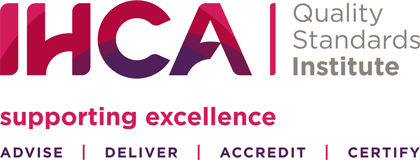NDIS Practice Standards
To achieve registration as an NDIS provider, the NDIS Commission requires assurance that certain standards of quality and safety in the delivery of services and supports are met. Providers will require either verification or certification of their services to achieve registration.
NDIS PRACTICE STANDARDS
Registered NDIS providers offering supports and services to participants must meet the quality and safety requirements contained in the National Disability Insurance Scheme Act 2013.
The NDIS Practice Standards and Quality Indicators set out the standards and expectations of registered NDIS providers relevant to the supports or services that they provide. Detailed information about these standards is available on the NDIS Commission website here.
While all registered providers are required to undertake an audit against the NDIS Practice Standards, there are two different pathways which are dependent on the nature of your business and the services you are offering to participants.
- A Verification audit is required by individuals and organisations delivering lower risk, less complex services to participants.
- A Certification process is necessary for all other organisations who provide higher risk, more complex services and supports to NDIS participants.
IHCA Certification will guide you through the right pathway. Our business exists to support human services organisations Australia-wide in achieving their quality improvement objectives and we have 30 years’ experience in assessing disability service providers. Our people genuinely care about our customers and we do all that we can to support you to do what you do best.

NDIS PRACTICE STANDARDS
Certification or Verification?
This depends on the type of services you deliver to participants. A certification pathway is prompted when delivering high and medium risk and complexity services and supports. For low risk and complexity services and supports, a verification pathway is prompted.
Verification Audit
Low Risk & Complexity
NDIS providers undergoing a verification audit will need to provide information including insurance details, evidence of appropriate qualifications or skills of your staff and membership of relevant professional bodies. You will also be required to show that you have complaints and incident management systems that are proportionate to the size of your organisation. A verification audit is conducted once every three years. The process is an off-site audit which reviews:
- Documents you submitted during the registration application/renewal process in relation to –
- human resource management
- incident management
- complaints management
- risk management
- Your information on the NDIS Portal
- Any additional requirements raised by the NDIS Commission.
Your assessor will contact you prior to conducting the verification audit and may also contact you during the audit to clarify information. At the conclusion of the verification audit, we advise the NDIS Commission of the verification outcome. Contact us today to find out more about how we can assist you in achieving Verification against the NDIS Practice Standards.
Certification Audit
High and Medium Risk & Complexity
The certification pathway operates over a three-year cycle that encourages your organisation to focus on continuous quality improvement and organisational learning.
Stage 1
Stage 2
18 months
Audit
This is a review of your NDIS provider registration application or renewal self-assessment responses, documents you have uploaded to the Commission’s system, and any prior certification or verification outcomes. This process is conducted off-site.
The Audit Team will determine your organisation’s readiness to proceed to the Stage 2 certification audit. Your organisation will be provided with advice on areas of potential nonconformity with the Standard that should be addressed prior to the Stage 2 audit.
Certification Audit
This is generally an on-site assessment where the audit team reviews your policies, procedures and records, conducts interviews with management, staff, participants and other stakeholders as appropriate and observes the conduct of your business activities.
If you operate across a number of sites, the sites to be visited will be agreed prior to the commencement of the Stage 2 audit.
At the conclusion of the on-site audit the findings will be presented to your organisation’s management and other interested parties (e.g. staff and participants), in relation to conformity with the Standard’s requirements.
At the closing meeting, the lead auditor will explain what follow-up action is required to develop a corrective action plan and ‘close out’ any nonconformities.
IHCA Certification will provide a written report to your organisation for your feedback, prior to submitting to the Commission. Following completion of our quality assurance processes, we will make a recommendation to the Commission for consideration in making the registration determination.
Mid-Term Audit
An onsite mid-term audit will be undertaken approximately 18 months after your registration has been granted by the NDIS Commission. This audit will ensure that your organisation’s work practices are being maintained and reviewed to ensure continuous improvement. A report will be provided to you with feedback regarding the results of this audit. The NDIS Commission will also be advised of the outcome.


